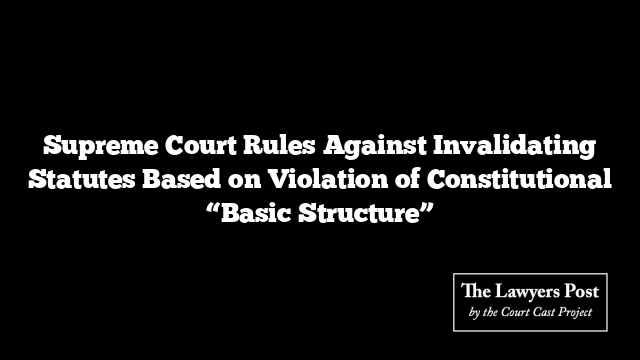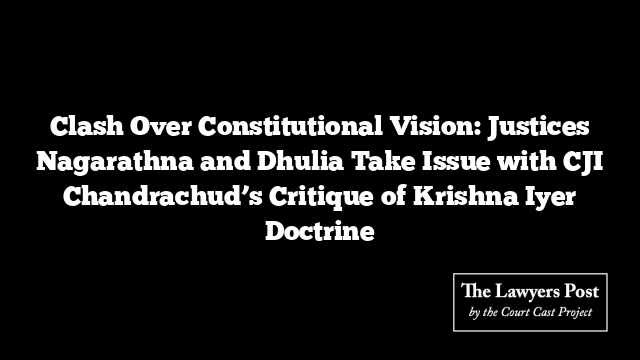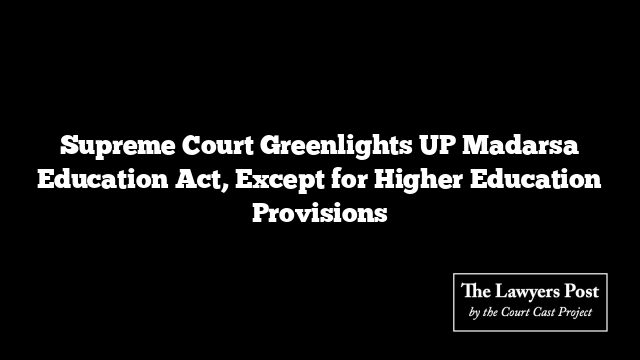In a landmark decision, the Supreme Court has clarified that the validity of a statute cannot be questioned solely on the grounds of a violation of the Constitution’s “Basic Structure.” The ruling came in the context of the Uttar Pradesh Board of Madarsa Education Act, 2004, which had been struck down by the Allahabad High Court for allegedly violating the secularism principle embedded in the Constitution.
The bench, led by Chief Justice DY Chandrachud, emphasized that for a statute to be declared invalid, there must be specific evidence of a violation of Part III of the Constitution or a lack of legislative competence. This rejects the broader application of the Basic Structure doctrine, which is typically reserved for constitutional amendments rather than ordinary statutes.
In its judgment, the Court reaffirmed that laws could only be invalidated for being beyond the powers of the legislature or for breaching explicit constitutional provisions. It cited key precedents, including State of Karnataka v. Union of India (1977) and Kuldip Nayar v. Union of India (2006), which previously held that ordinary statutes cannot be struck down merely for conflicting with the Basic Structure.
Drawing a distinction between constitutional amendments and regular statutes, the Court noted that broad constitutional principles like democracy, federalism, and secularism are often vague and open to interpretation. Allowing these concepts to determine the validity of legislation would lead to uncertainty in constitutional adjudication.
In this case, the High Court’s decision to invalidate the Madarsa Act on the basis of secularism was deemed incorrect. The Supreme Court clarified that the state’s establishment of a board to regulate Madarsa education did not violate Article 14 and served the principle of substantive equality. The ruling sets a clear precedent that laws must be challenged based on specific constitutional violations rather than abstract concepts like the Basic Structure.
The judgment sends a strong message about the boundaries of judicial review in the context of legislative competence and the application of constitutional principles to ordinary statutes.





